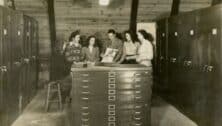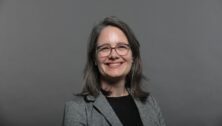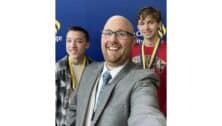Chester County Leadership: Chris Fiorentino, President, West Chester University
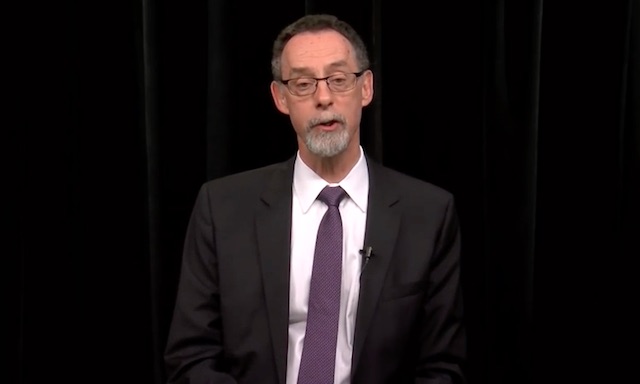
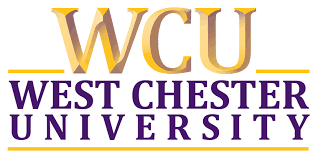 Editor’s Note: This profile of Chris Fiorentino was originally posted in May of 2016.
Editor’s Note: This profile of Chris Fiorentino was originally posted in May of 2016.
As he assumes the role of Interim President of West Chester University, Chris Fiorentino spoke to VISTA Today about growing up in Levittown and Langhorne; landing a job washing windows at Acme when he was 16 years-old; getting an undergraduate, Masters and then a Ph.D. degree in Economics from Temple; how a Philadelphia Inquirer classified ad led him to a temporary teaching position at West Chester University; raising through the ranks of department chair, dean, and eventually interim president at the university; and the importance he places on being a man of his word.
Where did you grow up Chris?
I was born in Philadelphia in 1953 the oldest of three boys and moved to Levittown, PA when I was just a baby. My father was a World War II vet and part of the original wave of young vets who moved from Philadelphia to Levittown, a new community in Bucks County just being built. Houses in Levittown were relatively inexpensive; My parents bought their house with a $50 down payment. We lived in that house until I was eleven years old.
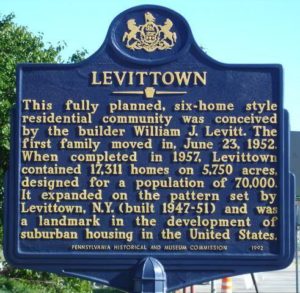
What did your parents do for a living?
My parents met in Art school. My mother was an art teacher who taught at Friend’s School in Newtown, Bucks County. My dad was an illustrator; first for an ad agency in Philadelphia then as a freelancer doing textbook illustrations for big publishers like Macmillian and Prentice Hall.
What do you remember about growing up in Levittown?
Everyone moved to Levittown about the same time, and there were hordes of kids all about the same age. The streets didn’t have a lot of traffic, so we played all sorts of sports, including touch-football and baseball with a rubber ball, in the streets. I also remember the ice cream truck from O’Boyle’s driving around the neighborhood at night.
Why did your family move from Levittown?
My parents had three kids by this point so in 1964 they bought a larger house in Langhorne and moved in. That house remained my parents’ home until we sold it last year.
Was moving to a different neighborhood a difficult transition for you to make?
The new house had a big back yard, and we played outside all day long. We moved mid-year, and I was in 6th grade in a new school, but I don’t remember it being that hard. I found being the “new kid” exciting. The next year I went to a brand new Junior High School in the Neshaminy School District and then to Neshaminy High School in 10th grade.
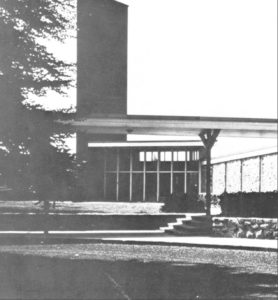
Were you a good student, Chris?
I would characterize myself as a bright but lazy student. My grades were pretty good, but I focused on doing the minimum necessary to get the good grade. My parents were big on education, so it was assumed I would go to college after high school.
Did you work in high school?
I worked at the Acme Market in Newtown for nine years. Getting that job was one of the most significant things that happened to me as a teenager. I started out washing windows and worked my way inside. Over the years I did a lot of different things in the store; stocking shelves, working the night crew, etc. Acme was interested in hiring me into their management trainee program when I graduated from college, but I decided to go on to graduate school instead.
Why was getting the job at Acme such a significant event in your life?
I came to see myself as having leadership potential at Acme. I often found myself in a position to accept responsibility for things. I seemed more inclined to step up to that responsibility than a lot of people around me. Even though I was pretty young, the experience moved me in the direction of wanting to be in charge. Even though I was just a part-time clerk, the manager would ask me to fill in when he needed someone to cover for vacations. I wasn’t afraid to be held accountable.
Where did that willingness to take on responsibility come from, Chris?
I’m not really sure. It probably came from my parents, especially my mother. She always assumed I would step up and be a leader and instilled that sense in me. I’m not sure if she saw something in me or just pushed me in that direction.
Where did you go to college?
I started out at Bucks County Community College and transferred to Temple University after two years.
Why Temple?
I chose Temple because it was close by. I worked my way through school, paying my own tuition and books along the way with the money I earned working at Acme. In the end, I earned Bachelors, Masters and Ph.D. degrees, all in Economics, from Temple.
Why did you major in Economics?
Economics clicked for me and helped me understand how the world worked. As I studied Economics at a high level, it was clear that it was my passion. When I started teaching Economics, firsts as a graduate assistant then as a professor at West Chester, most of the students I taught had never been exposed to the subject.
As I started explaining Economics to them in a structured way from a supply-and-demand perspective, the light bulb would go on for many of them as they developed an understanding how a market economy functioned. I occasionally bump into former students who tell me how studying Economics with me impacted their lives, which is very satisfying.
How did you end up at West Chester University?
When I came to West Chester, I was a replacement for a professor taking a one-year sabbatical. I answered an ad in the Philadelphia Inquirer and got the job. At the time, I was a starving teaching assistant at Temple. The West Chester job paid a lot more, so I was glad about that. But I thought I would be here one year and then go off and find a job somewhere else. In 1984, the one-year sabbatical turned into two years and after the second year, the University offered me a permanent position on a tenure track.
How did that work out for you?
Generally speaking, when a professor is on a tenure track, the trick is to keep his head down and do the job effectively. Once he earns tenure there’s a little bit more latitude to be “opinionated.” That wasn’t the case for me. Two years into my tenure-track appointment, I was elected to be Department Chair. For someone trying to be noncontroversial, being department chair was not a great idea. I was challenged by the opportunity however and delighted to take on the role.
Five years later, the departing Business and Public Affairs Dean encouraged me to become the interim dean. Asking me to be dean when I had only been tenured for three years and department chair for five, was an unusual career path. I had been teaching for a number of years and saw the opportunity to be a dean as an opportunity to step away from the classroom and recharge my battery.
Was the transition from professor to a department head and then dean at such an early age easy for you?
It was very challenging, and I routinely got myself in trouble. Shared governance is an important concept in higher education. I didn’t have a lot of experience and had to learn about shared governance the hard way. If I made a decision and the department felt I hadn’t solicited their input, they let me know about it. I learned on the job to make sure I engaged my colleagues in conversation and to take their perspective into account as I made decisions.
Did you have a mentor who guided you?
I did my dean’s job but looked forward to getting back to teaching at the end of my term. At the end of the two years, Rick Wells, the Dean of Arts and Sciences, who himself went on to become a college president in the Wisconsin system, encouraged me to apply for the permanent dean’s position.
My impression was the new president, Madeleine Adler, would want to hire her own deans but Rick assured me I had done a nice job as interim dean and encouraged me to throw my hat in the ring. I ended up getting the job, moving from department chair in 1987 to the interim dean in 1991 to the permanent dean in 1993.
What would have happened had you not taken the permanent dean position?
It’s hard to know for sure, but taking the position put me on an entirely different track than had I had stayed in the classroom.
You’re known for your work in the community, Chris. Why, given all your campus responsibilities, do you spend so much time in the community.
I’m not sure I can remember all the board I served on over the years. The first nonprofit board I joined was the Chester Springs Studio, and then I agreed to serve on the Greater West Chester Chamber’s board.
At first, I thought the reason I was doing community work was for the good of the University. What I started to realize, however, was that I had expertise that added value to the discussion. I helped the organizations develop bylaws and policies and over time started to feel I was making a major contribution. My focus transitioned from benefiting the University to benefiting the nonprofit. I met a lot of like-minded people who were public service oriented. It’s been interesting, satisfying work.
What challenges and opportunities are in front of you as you assume the president’s office?
During Greg Weisenstein tenure as president over the last seven years, the University has experienced explosive growth. It’s been a difficult time for higher education in general. The pool of college-aged young people is smaller. Costs are increasing. Tuition is increasing at most places. Enrollment in graduate programs at most universities is declining. We’ve been pleased with our ability to grow and prosper in that tough environment. We’ve gotten programs accredited, grown undergraduate and graduate enrollment by 20% and expanded our distance education programs.
That kind of growth has put a strain on our internal systems. Now is a good time to catch our breath a bit, to consolidate our gains and take a read of the state of the organization and community. We want to understand the impact of our gains and ensure we continue to support students as our mission demands.
Our growth means a lot more students on campus who have impacted our facilities as well as the community. The state budget remains a challenge causing us to reexamine our priorities and making sure we’re good stewards of both the state monies as well as the University’s future. We have a lot of regional economic and academic needs that must be met.
We cannot sit back and be caretakers. For instance, I want to make sure WCU plays a role in supplying more graduates to fill STEM entry-level positions in the workforce. I’m very excited.
What is the best piece of advice you ever received, Chris?
Something my father and others including John Ciccarone and Al Eastburn told me comes to mind. My father taught me that if I were the type of person whose handshake is his bond and whose word is sacred, people would come to respect me. Establishing that you have personal integrity is the best thing a person can do.
Connect With Your Community
Subscribe to stay informed!
"*" indicates required fields
































![95000-1023_ACJ_BannerAd[1]](https://vista.today/wp-content/uploads/2023/03/95000-1023_ACJ_BannerAd1.jpg)













